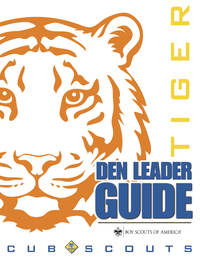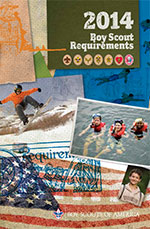 School starts in most places in just a few weeks, which means we’re heading into our big recruiting season. Packs will be going out into the schools to spread the word about Cub Scouting, enticing boys with the thrill of adventure, exploration and fun, and hoping they’ll run home to tell their parents that they want to join.
School starts in most places in just a few weeks, which means we’re heading into our big recruiting season. Packs will be going out into the schools to spread the word about Cub Scouting, enticing boys with the thrill of adventure, exploration and fun, and hoping they’ll run home to tell their parents that they want to join.
We’re also going to be recruiting their parents as den leaders, committee members and even Cubmasters. Without adult volunteers, Scouting simply wouldn’t exist.
Recruiting boys is relatively easy. They’ll go for anything that appeals to them, and Cub Scouting has it all – and then some.
But recruiting adults is another story. Continue reading “Just tell me what I need to do!”


 The game of Scouting that we play is indeed a game. We hope that our boys are having fun, and one of the best ways to have fun is to play a game. William “Green Bar Bill” Hillcourt was the first to describe Scouting asÂ
The game of Scouting that we play is indeed a game. We hope that our boys are having fun, and one of the best ways to have fun is to play a game. William “Green Bar Bill” Hillcourt was the first to describe Scouting as  As we get back into high gear with our pack and troop programs, we may find that we’ve had some “churn” in our adult commitments. Perhaps a family moved away over the summer or decided on a shift in priorities. When that happens, an adult who made a commitment to volunteer in our unit is no longer available. This churn is most common in Cub Scouting, as den leaders move up and new dens (particularly Tiger dens) form, membership in the various den levels gets redistributed, or an adult in a key role has experienced a change in outside commitments, such as work or other involvement, and can’t continue in that role.
As we get back into high gear with our pack and troop programs, we may find that we’ve had some “churn” in our adult commitments. Perhaps a family moved away over the summer or decided on a shift in priorities. When that happens, an adult who made a commitment to volunteer in our unit is no longer available. This churn is most common in Cub Scouting, as den leaders move up and new dens (particularly Tiger dens) form, membership in the various den levels gets redistributed, or an adult in a key role has experienced a change in outside commitments, such as work or other involvement, and can’t continue in that role.